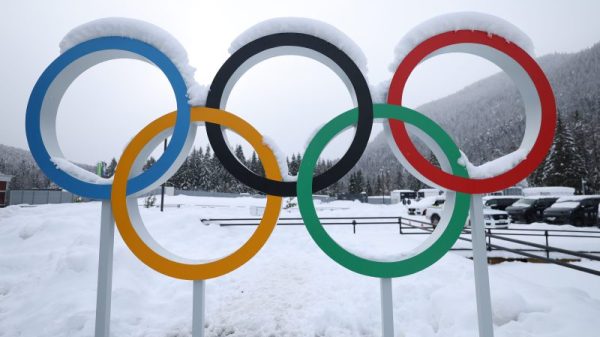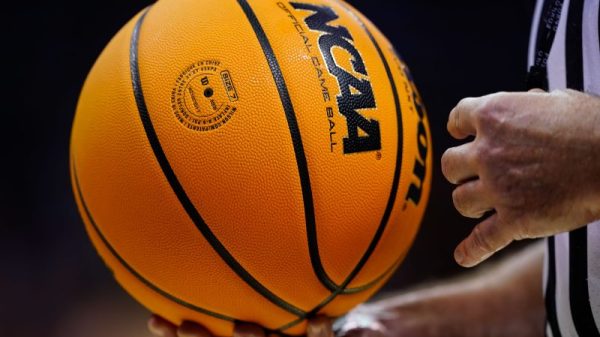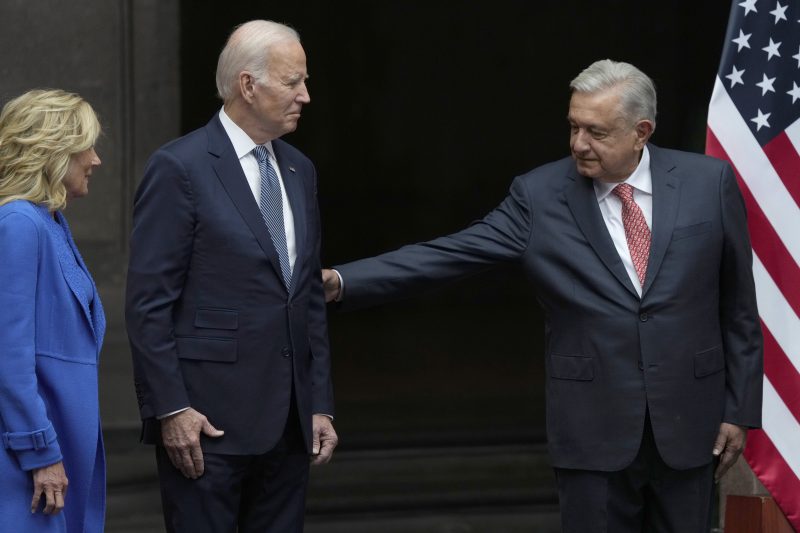The Justice Department has launched a review into the discovery of classified documents at the Penn Biden Center for Diplomacy and Engagement, an institute in downtown Washington, D.C., that Joe Biden started after serving as vice president, according to people familiar with the matter.
The White House confirmed the ongoing inquiry and said it is cooperating with the Justice Department and quickly handed over the documents to the National Archives and Records Administration — the agency tasked with handling presidential records. Roughly 10 documents were found, said one person familiar with the inquiry, who spoke on the condition of anonymity because they were not authorized to speak publicly. The discovery was first reported by CBS News.
“The White House is cooperating with the National Archives and the Department of Justice regarding the discovery of what appear to be Obama-Biden Administration records, including a small number of documents with classified markings,” Richard Sauber, special counsel to President Biden, said in statement.
The documents were found at the Penn Biden Center in early November, not long before Attorney General Merrick Garland tapped a special counsel, Jack Smith, to oversee the agency’s criminal investigation into Trump’s possible mishandling of hundreds of classified documents that were taken to Mar-a-Lago after his presidency ended. Officials have said the Trump investigation concerns not just the possible mishandling of government secrets, but possible obstruction of justice or destruction of records.
In the case involving the Penn Biden Center, Sauber said the documents were discovered when the president’s personal lawyers were packing files kept in a locked closet to prepare to vacate office space at the center, which Biden used periodically from mid-2017 until he launched his presidential campaign in 2020. The documents were discovered on Nov. 2, at which point the White House counsel’s office notified the archives, Sauber said. The archives took possession of the documents the next day, he added.
Garland has tapped U.S. Attorney for the Northern District of Illinois John R. Lausch Jr., who was nominated by Trump, to oversee the review of the Biden documents, according to two people familiar with the matter, one of whom said the FBI is also taking part in the review. Spokespeople for the Justice Department, the FBI and Lausch declined to comment.
While the Biden case has obvious echoes of the Mar-a-Lago investigation, the details provided by Biden’s lawyer on Monday suggest key differences that could factor heavily in whether the Biden documents become a criminal matter.
Sauber said the Biden documents were discovered by the president’s lawyers and voluntarily turned over to authorities. By comparison, in Trump’s case, NARA officials pressed for material to be returned, then Trump’s office was served with a grand jury subpoena demanding their return. After Trump’s lawyers handed over 38 classified documents in response to the subpoena, an FBI search recovered more than 100 additional classified documents that were not turned over to authorities.
The Biden documents “were not the subject of any previous request or inquiry by the Archives,” Sauber said in the statement. ‘Since that discovery, the President’s personal attorneys have cooperated with the Archives and the Department of Justice in a process to ensure that any Obama-Biden Administration records are appropriately in the possession of the Archives.”
Much of the criminal investigation into the keeping of classified documents at Mar-a-Lago, Trump’s private club and residence, has centered on what officials have described in court papers as possible obstruction of the efforts to recover all of the documents. So far, no such allegation has been leveled in the Biden matter, though it is at an earlier stage.
One person familiar with the Biden inquiry, speaking on the condition of anonymity to discuss an ongoing review, argued that while there are obvious similarities with the Trump case, so far the circumstances appear to be quite different. That person said the voluntary notification, and the sheer difference in the number of documents stand out as key differences.
“But at the heart of it is, in both situations classified national security information went somewhere it shouldn’t have, so that raises a bigger question about the handling of classified (material), both in the White House and then during the period of transition,” the person added.
Legal experts say that it is not uncommon for some people who have security clearances to mishandle classified documents. But these situations are typically handled administratively, not criminally, since the criteria for prosecuting people who mishandle classified documents includes proving that the person deliberately flouted rules for how to secure the materials.
Biden opened the Penn Biden Center in February 2018 as think tank for the University of Pennsylvania in Washington, attracting some of the country’s top foreign policy experts and lawmakers.
The leadership of the center included a coterie of longtime Biden aides, including many that now serve in top roles in the president’s administration. Secretary of State Tony Blinken was the center’s managing director and Steve Ricchetti, a senior adviser to the president, served as managing director after Blinken.
Michael Carpenter followed Richetti in that role and now serves as the U.S ambassador to the Organization for Security and Cooperation in Europe. The center’s opening event included Amy Gutmann, who at the time was president of the University of Pennsylvania, and David Cohen, the president of the university’s board of trustees. Both are now serving as U.S. ambassadors, with Gutmann in Germany and Cohen in Canada.
This is a developing story. It will be updated.



























